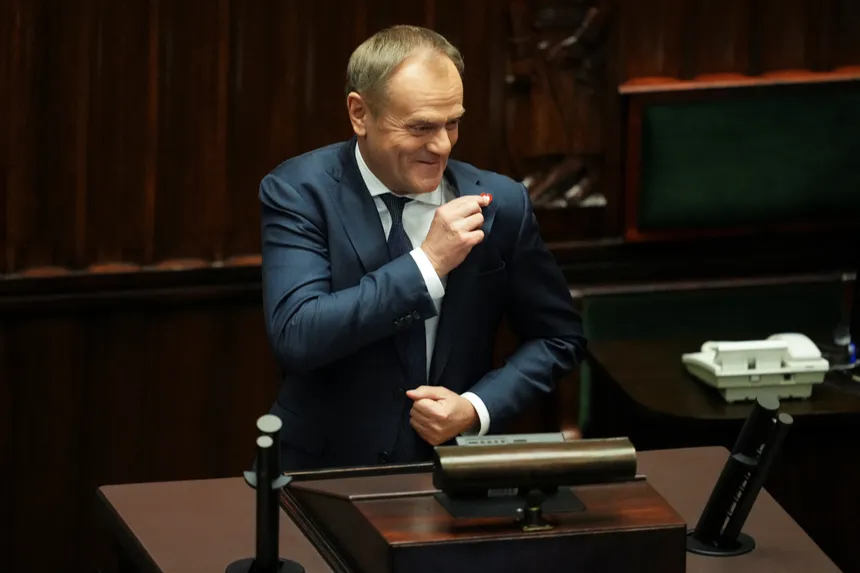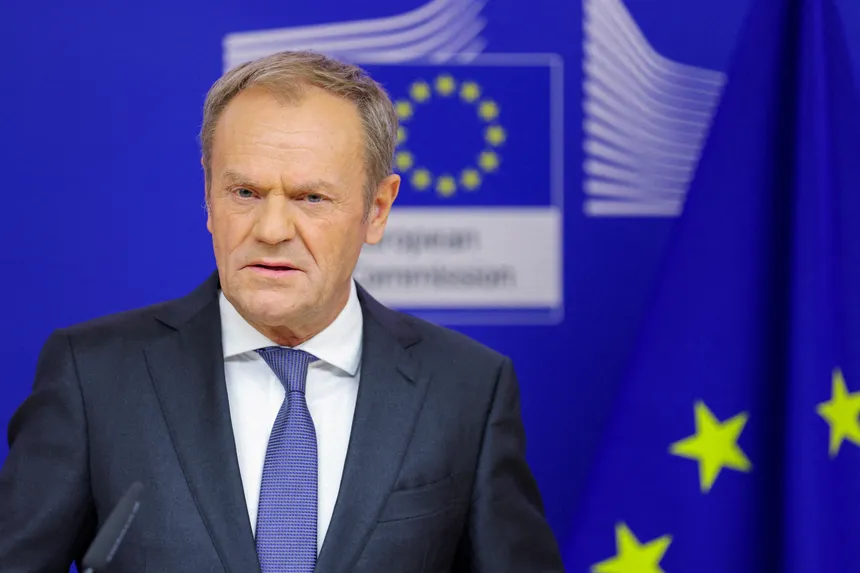The Polish opposition parties, which collectively won the most votes in the recent election, have signed a coalition agreement that aims to restore the country’s legal order and strengthen its security in the face of Russian aggression against Ukraine. The parties, which call themselves the “democratic opposition,” have been struggling to come to terms with eight years of rule by the right-wing populist Law and Justice party, which has been accused of eroding the rule of law.
The coalition agreement, signed by the leaders of the opposition parties, including former Prime Minister Donald Tusk, outlines a roadmap for governing the nation over the next four years. The document cites the “unprecedented threat to our security caused by Russian aggression against Ukraine” and pledges to strengthen Poland’s international position, including in the European Union and NATO.
The agreement’s language is a clear rebuke of the sometimes combative tone taken by Law and Justice with foreign partners, even allies such as Germany and Ukraine. The opposition parties, which have a comfortable majority in the parliament, have vowed to exercise a clear and calculable foreign policy that is intelligible to friends and deterrent to enemies.
Despite their differences, the parties have put aside their conflicting views and come together to form a broad alliance. One key issue where they do not agree is abortion, a highly divisive issue in a traditionally Catholic country undergoing rapid secularization. The abortion law was restricted under Law and Justice, and a near-total ban is now in place.

Prime Minister Donald Tusk (Via Donald Tusk/Twitter)
The coalition represents a united front against what many see as the erosion of democracy under Law and Justice. The opposition parties have vowed to work together to restore the nation’s legal order and strengthen its security, and to promote democratic values and human rights. The agreement is seen as a significant step towards a more stable and democratic government in Poland.
The opposition parties have chosen Donald Tusk, a former Prime Minister and leader of the centrist and pro-European Union group Civic Coalition, to be their candidate to be the next prime minister. Tusk, who has also served as the top leader of the European Union, has assured that the coalition agreement offers “signposts and recommendations for our work.”
The signing of the coalition agreement has sent a strong signal to Europe and the world that Poland is returning to the democratic, law-abiding map of Europe and the world that respects human rights. The agreement’s signatories are confident that they have the skills and expertise to govern effectively and restore Poland’s reputation as a responsible and democratic member of the international community.











































